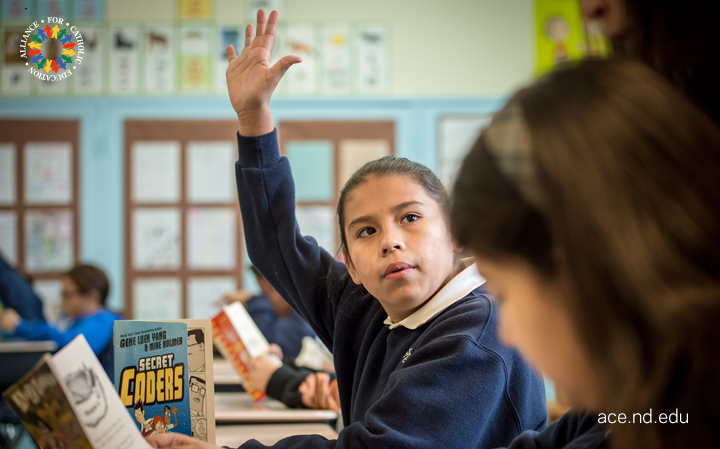The English as New Language Program (ENL) is proud to announce a collaboration with Notre Dame's Institute of Latino Studies and Holy Cross Grade School in South Bend to launch a Spanish-English Immersion Program beginning at the pre-kindergarten and kindergarten grades.
"Two-way immersion programs are a perfect fit for Catholic schools in that our schools function as an extension of home language and culture."
The two-way immersion program is a unique and innovative model that has been shown to help Catholic schools around the country. Through this model, students bring their distinct language and cultural knowledge to form new learning communities that gain from different linguistic and cultural assets. With both languages equally represented, students who are English language learners feel a sense of appreciation for their dual language gifts. Native Spanish speakers feel welcomed in the classroom as students and in the school as parents. For ENL's director and academic leader of the Immersion program, Dr. Katy Lichon, this equity emphasis is vital.
"At the core of our Catholic schools, we have always had traditional cultural parishes that served immigrant children," Lichon said. "We as a Catholic school community have a long history of building bridges between the places we have come and the people we will come to know. Two-way immersion programs are a perfect fit for Catholic schools in that our schools function as an extension of home language and culture and as places to encounter, learn from, and love others that are different than ourselves. At the core, what unites all participants in this program is the shared Eucharistic table."
Dr. Luis Fraga, an expert on the effect of two-way immersion on school communities and the co-director of the Institute of Latino Studies, believes that Holy Cross School is poised to become a regional pioneer in Catholic education.
"What better way to build intercultural communities of respect and understanding consistent with the Gospel and the call of the Unites States Conference of Catholic Bishops?" Fraga asked. "Two-way immersion programs capture the growing diversity of our Catholic communities to build educational opportunities that strengthen our Catholic schools and serve the Church for generations to come."
Cognitive, academic, and social benefits also come with immersion in two languages. Children are asked to work in two simultaneously active language systems, which provides an exciting challenge for young minds. Bilingual and bi-literate students have been found to outperform mono-lingual students in multiple grade levels. With increased communication abilities, children can communicate with other populations to expand their worldview and learn about a culture beyond their own.
Holy Cross' proximity to a growing Latino population and its capacity for two classes per grade level positioned the school as a good fit for the model. This fall, pre-kindergarten and kindergarten classrooms will start the program, with one class functioning in the traditional model and one classroom following the immersion program. Twenty-five students will participate in the immersion program, split between native English speakers and native Spanish speakers. The immersion program will continue to be implemented in each grade level as the students graduate each year.
Please contact Dr. Katy Lichon (kwalter5@nd.edu) to learn more, and to inquire about teaching possibilities.

